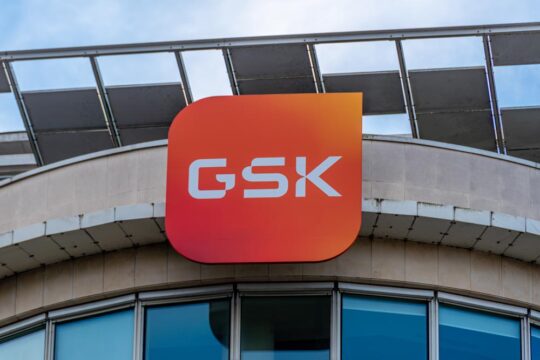Advertisment
ECC 2013: Late Breaking Clinical Trials: ASPECCT

by Esther Drain reporting on the presentation by Dr Timothy Price – A randomized, multicenter, open-label, phase 3 study of panitumumab (pmab) vs cetuximab (cmab) for previously treated wild-type (WT) KRAS metastatic colorectal cancer (mCRC). Dr Timothy Price, University of Adelaide, Australia.
In patients with refractory KRAS wild-type mCRC, panitumumab is non-inferior to cetuximab with respect to overall survival, according to the first head-to-head phase III study to evaluate these two epidermal growth factor receptor (EGFR) inhibitors in this setting. The results of the ASPECCT study were presented at ECCO 2013 by Dr Tim Price from the Queen Elizabeth Hospital in Adelaide in Australia. The rationale for the study was that whilst cetuximab had demonstrated a significant overall survival benefit in patients with chemorefractory (3rd line) mCRC [1], no such benefit had been demonstrated for panitumumab. The investigators hypothesised that the use of cross-over designs could explain this lack of proven benefit and designed the ASPECCT study as a randomised, open-label study in more than 300 centres worldwide.
Under the ASPECCT protocol, patients with KRAS wild-type mCRC who had previously received irinotecan, oxaliplatin or fluorouracil-based chemotherapy but no anti-EGFR treatment were randomised 1:1 to receive either panitumumab or cetuximab until disease progression, with no cross-over between treatment arms allowed. The primary endpoint was overall survival (OS). The study was statistically powered to demonstrate non-inferiority if panitumumab could retain at least 50% of the OS benefit seen with cetuximab versus best supportive care (BSC) as shown in the C0.17 study [1] (HR for cmab vs BSC 0.55; 95% CI 0.41, 0.74) using a synthesis method. Secondary endpoints included PFS, ORR, and safety. Patient enrolment began in February 2010; the initial results presented at ECCO 2013 comprised data from a total of 999 patients.
At a median follow-up period of just over 9 months, the primary results of the ASPECCT study show largely identical median overall survival rates in the panitumumab and cetuximab groups, and the statistical criteria for non-inferiority were met. Stratification of patients according to location (North America, Western Europe and Australia vs the rest of the world) and ECOG performance status (0 or 1 vs 2) showed consistent results; nor did age, gender or the site of the primary tumour and/or metastases alter the outcome. Likewise, panitumumab was shown to be non-inferior to cetuximab with respect to PFS. Both treatment arms experienced side effects consistent with what has been described in previous studies for both treatments. The proportion of patients whose reported side effects were at worst grade 3, 4 and 5, respectively, were 36.3%, 7.5% and 5.8% in the panitumumab arm and 31.6%, 5.4% and 9.9% in the cetuximab arm. Serious adverse events were reported by 30.4% and 33.6% of patients, respectively; 13.9% of patients in the panitumumab arm and 12.1% in the cetixumab arm discontinued treatment permanently due to side effects.
In his discussion of the ASPECCT study, Professor Tabernero cautioned that although the ASPECCT study addresses an important objective in the treatment of chemorefractory mCRC and shows that panitumumab and cetuximab are comparable with respect to OS and PFS in this setting, the results must not be extrapolated to other settings or indications. Studies comparing panitumumab and cetuximab in previous lines of therapy have been inconclusive [2-4]. Furthermore, cetuximab has shown significant clinical benefit in squamous cell carcinoma of the head and neck (SCCHN) [5,6] and non-small cell lung cancer [7], whereas no benefit has been shown with panitumumab in these tumour types [8, 9]. Professor Tabernero also reminded the audience of secondary outcomes that should be documented before the two treatments can be regarded as truly interchangeable, including time to treatment failure (TTF), dose intensity, dose modifications, and quality of life – these should be included in future comparative trials, and other potential predictive biomarkers such as RAS, BRAF and PIK3CA mutations should also be investigated.
References
1. Jonker, D.J., et al., Cetuximab for the treatment of colorectal cancer. N Engl J Med, 2007. 357(20): p. 2040-8.
2. Bokemeyer, C., et al., Addition of cetuximab to chemotherapy as first-line treatment for KRAS wild-type metastatic colorectal cancer: pooled analysis of the CRYSTAL and OPUS randomised clinical trials. Eur J Cancer, 2012. 48(10): p. 1466-75.
3. Sobrero, A.F., et al., EPIC: phase III trial of cetuximab plus irinotecan after fluoropyrimidine and oxaliplatin failure in patients with metastatic colorectal cancer. J Clin Oncol, 2008. 26(14): p. 2311-9.
4. Ducreux, M. and e. al, Randomized Phase 3 Study of Panitumumab With FOLFIRI vs. FOLFIRI Alone as Second-Line Treatment in Patients With Metastatic Colorectal Cancer. Gastrointest Cancer Res, 2010. (Suppl 1): p. S33.
5. Rivera, F., et al., Cetuximab in metastatic or recurrent head and neck cancer: the EXTREME trial. Expert Rev Anticancer Ther, 2009. 9(10): p. 1421-8.
6. Frampton, J.E., Cetuximab: a review of its use in squamous cell carcinoma of the head and neck. Drugs, 2010. 70(15): p. 1987-2010.
7. Pirker, R., et al., Prognostic factors in patients with advanced non-small cell lung cancer: data from the phase III FLEX study. Lung Cancer, 2012. 77(2): p. 376-82.
8. Vermorken, J.B., et al., Cisplatin and fluorouracil with or without panitumumab in patients with recurrent or metastatic squamous-cell carcinoma of the head and neck (SPECTRUM): an open-label phase 3 randomised trial. Lancet Oncol, 2013. 14(8): p. 697-710.
9. Pirker, R., EGFR-directed monoclonal antibodies in non-small cell lung cancer. Target Oncol, 2013. 8(1): p. 47-53.





